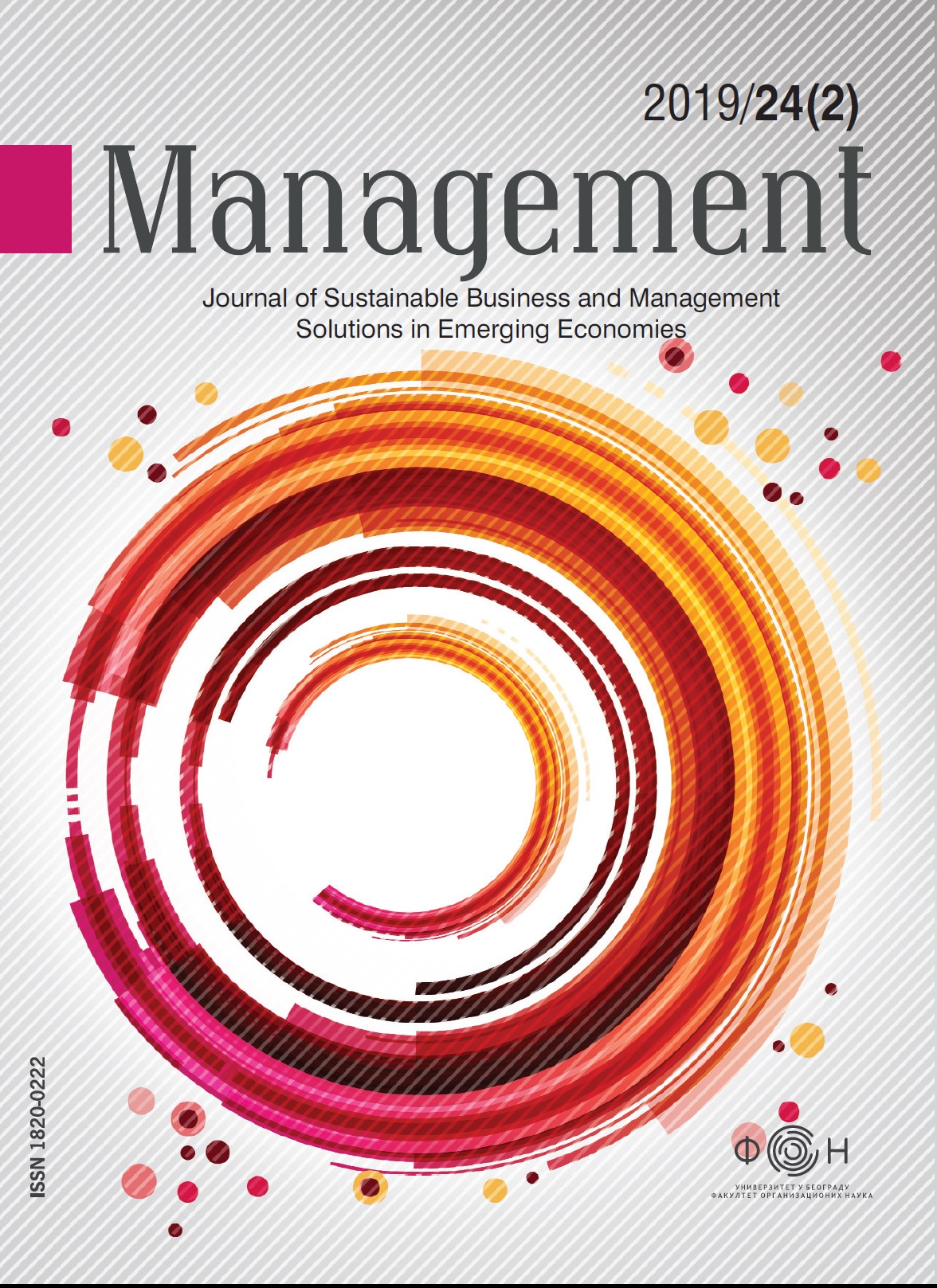The Impact of Inflation and Operating Cycle on the Corporate Cash Holdings in South-East Europe
The Impact of Inflation and Operating Cycle on the Corporate Cash Holdings in South-East Europe
Author(s): Aleksandar Naumoski, Péter JuhászSubject(s): National Economy, Business Economy / Management, Financial Markets, Socio-Economic Research
Published by: Fakultet organizacionih nauka Univerziteta u Beogradu (FON)
Keywords: CPI;liquidity;working capital;operating cycle;panel regression;corporate cash holdings;
Summary/Abstract: Research Question: This paper investigates the influence of the inflation and operating cycle on the corporate cashholdings. Motivation: In an early study, Keynes (1936) provides a theoretical foundation for determining the optimal cashlevel as a balance of costs and benefits of cash holdings. However, the optimal corporate cash amount is not onlydependent on many company-specific factors (Opler et al., 1999), but it is also associated both with the corporategovernance structure and the institutional and macroeconomic environment (Ozkan and Ozkan, 2004). Anand et al. (2018)confirmed the impact of a set of macroeconomic factors, but recent studies distinguished inflation as a critical factor of thechanges of the company cash holdings (Curtis et al., 2017). Idea:The main idea of the paper is to examine whetherinflation as a crucial macroeconomic factor and the operating cycle as a vital microeconomic factor have substantialinfluence on the corporate cash holdings, and which direction this impact may take. Data: We used company financial datafrom a sample of 868 publicly traded firms from ten South-East European countries between the years of 2006 and 2015,obtained from the Thomson Reuters Datastream database.Tools: We apply a balanced panel regression model involvingthe yearly change of the cash ratio as a dependent variable, and the country CPI, the operating cycle and other firm-specific control variables as explanatory variables. Findings: Results confirm that both the inflation and the operating cyclehave a substantial influence on the change of the corporate cash holdings. The relationship of the change in cash and theinflation is non-linear and best described by a U-shaped curve. At the same time, there is a straight linear relationshipbetween the change in cash holdings and the operating cycle. Moreover, we have found that the changes in the corporatecash holdings are positively related with the size of the company, the operating cash flow and the capital expenditures,but inversely related with the change of the networking capital and the change of short and long-term debt.Contribution:This paper reveals the effect of macro-control policies on corporate cash holdings, and, most importantly, it provides areference for corporate managers to optimise the allocation of resources based on changes in the macro-financialenvironment and their own financial circumstances.
Journal: Management: Journal of Sustainable Business and Management Solutions in Emerging Economies
- Issue Year: 24/2019
- Issue No: 2
- Page Range: 35-46
- Page Count: 11
- Language: English

